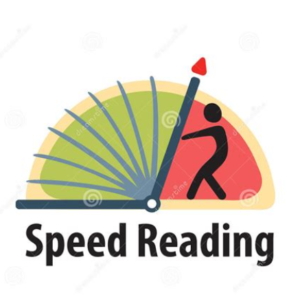Mastering Efficient Reading and Learning: A Comprehensive Guide with Practice Questions
Efficient Reading Strategies for Standardized Tests
Standardized tests such as the SAT, ACT, TOEFL, and IELTS often require a strategic approach to reading. Efficient reading strategies are crucial for success. One noteworthy technique is skimming, which involves quickly glancing over the text to get an overview of the content. This method helps in identifying the main ideas and the structure of the passage without delving into every detail. Complementing skimming is scanning, a technique where you look for specific information or keywords within the text, allowing you to answer detail-oriented questions accurately and swiftly.
Active reading is another pivotal technique. Engage with the material by annotating, underlining key points, and summarizing sections in the margins. This active involvement aids in better retention and comprehension, making it easier to refer back to vital information. Furthermore, time management is paramount during standardized tests. Allocate specific time slots for each passage and question, and adhere strictly to this timeline. It’s essential to practice these techniques under timed conditions to emulate the pressure of the actual exam.
Another useful strategy is learning to identify key information quickly. Focus on topic sentences, concluding sentences, and transitional phrases, as these often contain the central idea of a paragraph or passage. Recognizing text patterns, such as cause and effect or comparison and contrast, can also provide insights into the author’s intent and the structure of the text.
In addition to these strategies, practicing with real-time questions can significantly enhance your reading proficiency. Utilize practice questions that simulate actual test conditions to apply and refine these techniques. Addressing common traps is equally critical. Be wary of distractor options in multiple-choice questions that seem correct but are subtly misleading. Stay focused and avoid reading the same sections repeatedly, as this can waste precious time.
Recommended Books and Resources for College and Graduate School Preparation
Preparing for graduate school requires a disciplined approach to both understanding core subjects and mastering test-taking strategies. Several books and resources stand out for their comprehensive coverage, rigor, and realistic practice questions tailored for various standardized tests, such as the GRE and GMAT, as well as admission tests specific to China.
One of the most recommended resources is the “Official GRE Super Power Pack,” which includes the “Official Guide to the GRE General Test,” “Official Quantitative Reasoning Practice Questions,” and “Official Verbal Reasoning Practice Questions.” This pack offers a complete overview of the GRE format along with real test questions from past exams, making it an invaluable tool for understanding how questions are framed and how the test is structured.
For GMAT preparation, the “GMAT Official Guide Bundle 2022” by the Graduate Management Admission Council (GMAC) is highly regarded. This bundle includes extensive explanations of the concepts tested, practice questions, and answers with detailed rationales. Additionally, the included online question banks provide an excellent opportunity to simulate the testing environment, enhancing both time management skills and accuracy.
Students preparing for graduate school admission tests in China will find “New Oriental GRE Vocabulary” essential. Known for its focus on advanced English vocabulary, grammatical structures, and reading comprehension skills, this book is structured to meet the particular challenges faced by non-native English speakers.
To build a robust study library, it’s essential to include books that not only aid in test preparation but also foster a deep understanding of fundamental concepts. “Barron’s GRE” is well-regarded for its thorough review of key principles and numerous practice questions. Its critical thinking and analytical approach help reinforce the foundational knowledge necessary for graduate-level education.
Online platforms like Khan Academy and Coursera provide supplementary resources that offer interactive courses on various topics ranging from mathematics to economics and critical thinking. These courses are particularly helpful for reinforcing learning through videos, quizzes, and peer interaction.
Ultimately, the combination of high-quality textbooks, practice materials, and versatile online resources equips students with the skills and knowledge to excel in their college and graduate school journey. By strategically curating a balanced study library, students can navigate the complexities of their exams confidently and competently.


Post Comment